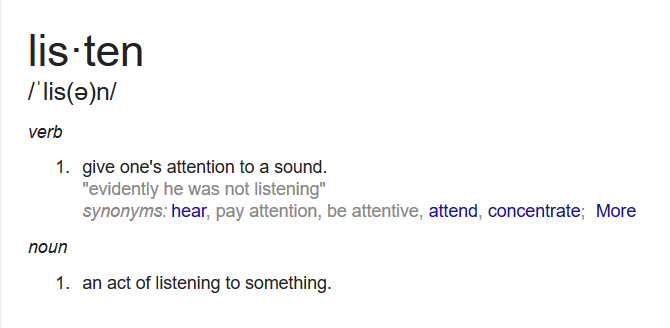“The word listen contains the same letters as the word silent.” –Alfred Brendel
3 Things Great Listeners Do Differently to Build Profitable Businesses
There’s so much talking happening when presenting opportunities. We talk to sell, convince, pitch, interrupt because we have a thought, provide feedback, overcome what might sound like an objection, explain instructions, and close. Beyond the spoken words, there’s invaluable information to be gained through tone of voice, body language, and what isn’t said.
In other words, failing to keep your ears (and eyes) open could leave you out of the game and no one joining your home business / mlm / network marketing business.
Most people believe that their listening skills are where they need to be, even though they aren’t. Or, even worse they don’t even realize they talk over people and don’t leave the prospect the chance to talk. Great listeners take time to learn this important skill.
A study at Wright State University surveyed more than 8,000 people from different verticals, and almost all rated themselves as listening as well as or better than their co-workers. We know intuitively that many of them are wrong.
To become a great listener is something that can absolutely be learned and mastered. Even if you find attentive listening difficult and, in certain situations, boring or unpleasant, that doesn’t mean you can’t do it. You just have to know what to work on. The straightforward strategies that follow will get you there.
1. Focus.
The biggest mistake most people make when it comes to listening is they’re so focused on what they’re going to say next or how what the other person is saying is going to affect them that they fail to hear what’s being said. The words come through loud and clear, but the meaning is lost. Focusing may seem like a simple suggestion, but it’s not as easy as it sounds. Your thoughts can be incredibly distracting.
Become a laser beam listening to your prospect and watching your client. Their body language speaks volumes.
2. Ask good questions.
People like to know you’re listening, and something as simple as a clarification question shows not only that you are listening but that you also care about what they’re saying. You’ll be surprised how much respect and appreciation you gain just by asking good questions. In addition to verifying what you’ve heard, you should ask questions that seek more information. Examples of probing questions are “Tell me more about you?” and “What can I do to help?”, “Why is this important to you?”. The key is to make certain that your questions really do add to your understanding of the speaker’s words, rather than deflecting the conversation to a different topic.
3. Use positive body language.
Becoming aware of your gestures, expressions, and tone of voice (and making certain they’re positive) will draw people to you like ants to food. Using an enthusiastic tone, uncrossing your arms, maintaining eye contact, and leaning towards the speaker are all forms of positive body language employed by great listeners. Positive body language can make all the difference in a conversation.
The key is becoming aware and taking action. Go practice these 3 skills today and watch how others are interested in you as you listen to them.
Have an amazing day listening. People are amazing!
So much love,
Eric




